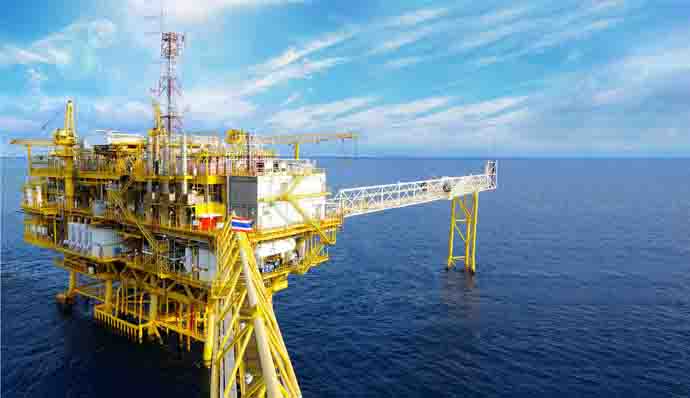By MEO Reporter
Kuwait has announced its plan of offering the shares of 4 petroleum companies in the public offering. Anas Khalid Al-Saleh, Deputy Prime Minister and Acting Oil Minister, states that Kuwaiti government is conducting a study to offer four petroleum companies, subsidiaries to Kuwait Petroleum Corporation, to the public offering. He expressed his satisfaction with the current oil price, $50. The four companies, to be offered, are Kuwait Petroleum International, Kuwait Oil Tanker Company, Kuwait Foreign Petroleum Exploration Company and Petrochemical Industries Company. Al-Saleh excluded selling any shares of Kuwait Petroleum Corporation, the parent company of all oil companies in Kuwait.
Al-Saleh says that the government is conducting a study to offer from 20 to 30 per cent of the four companies’ shares. He has not mentioned any specific date or value for the expected offered shares, explaining that this process could take up to 4 years till it is complete. Still, the Kuwaiti Parliament has to approve such offering of public shares.
Khalifa Hamada, Kuwaiti Under-Secretary of the Ministry of Finance, has pointed out that the government is conducting a study of privatizing the oil local sector; however this will not include the production capacity. Hamada adds, in a press conference in Kuwait’s Capital, that the Ministry of Finance, along with Kuwait Petroleum Corporation, is looking through the possible oil services and sectors to privatize.
Khalid A. Al-Falih, Saudi Minister of Energy, has stated, in an interview with the German Handelsblatt Newspaper, that Aramco is to offer its shares as well. It is worthy to note that Aramco is the biggest Saudi company in the petroleum sector. He adds that the public offering date depends on the market status, the readability of the local market and future oil prices. Aramco’s offer of its shares is the biggest as the Saudi government intends to sell less than 5 per cent of Aramco’s shares before the end of 2018; Muhammad Bin Salman, Deputy Crown Prince, estimated this offering at $2t to $3t.
Aramco is conducting a study of offering its shares in just the local stock market or both the foreign stock market and local one. The initial public offering of the shares is a step forward to better Saudi economy. Last June, Al-Falih informed journalists in Vienna that the timeframe of offering Aramco’s shares is reasonable as it will take place in 2018. He adds: “Our priority is to offer the parent company’s shares first before offering any subsidiaries.”
Al-Saleh pointed out that Kuwait will invest more than $60bn in the upstream industry over the next five years. This investment aims at increasing the production capacity from 3 to 4 million barrels daily by 2020. Moving on to oil prices, Al-Saleh expects the oil barrel price to range from $50 to $60 by 2018, referring to the $50 price as a reasonable price that would balance the market and increase oil demand. Kuwait’s oil production capacity will increase from 3 to 4 million barrels by 2020; Kuwait Oil Company has signed contracts with global companies to enhance its production capacity. Kuwait Oil Company signed contracts with both BP company to increase the production of Barqan field, and Royal Dutch Shell to increase the production of Al-Ratqa field. BP used to own 50 per cent of Kuwait Oil Company’s shares before the nationalization act of petroleum sector in 1975. Al-Saleh added that Kuwait and Saudi Arabia have going on negotiations about bringing back the oil production in Saudi Arabian–Kuwaiti neutral zone; if the negotiations proved to be fruitful, oil production would rise to 300 thousand barrels daily.
Al-Wafra and Al-Khafji fields in Saudi Arabian–Kuwaiti neutral zone used to produce 500 thousand barrels daily before the authorities shut them down. Al-Khafji field was shut down in October 2014 for environmental reasons; the field’s production ranged from 280 thousand to 300 thousand barrels on a daily basis. The field was managed by Al-Khafji Joint Operations. As for Al-Wafra field shut down, it came as a consequence of Chevron Corporation’s shut down in Kuwait in 2014 as a result of Kuwaiti officials’ protest against Chevron’s granted privilege by Saudi Arabia in 2009.


